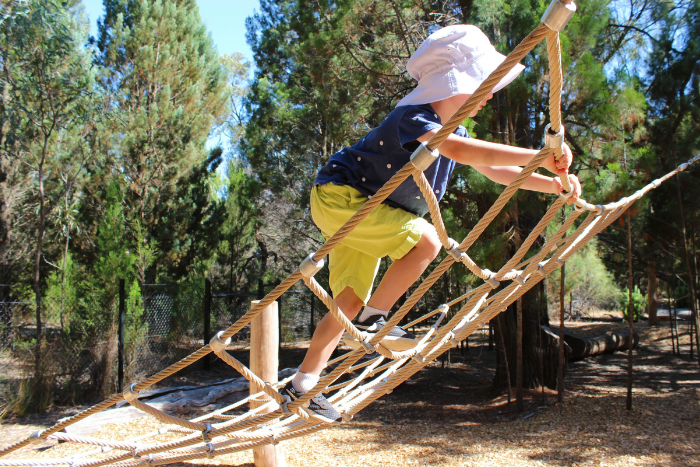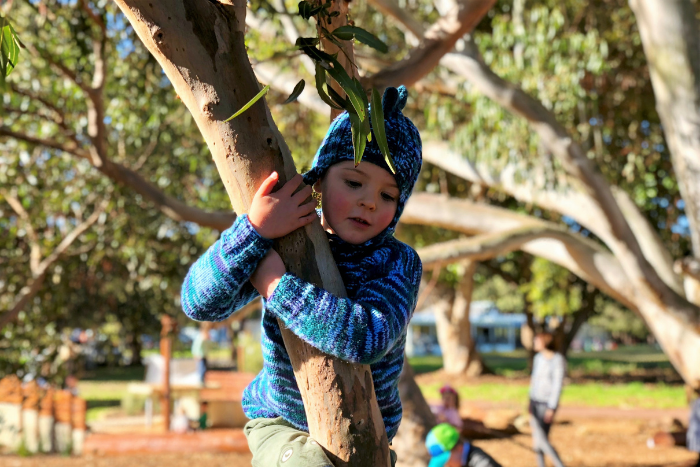How to Stop Saying “Be Careful” and What to Say Instead
At any playground, on any given day, you’ll hear (or deliver) the call of the harried parent; “Be careful!”
Sometimes it’s said with a sense of warning, other times it’s almost a threat, but invariably it falls on deaf ears. Why? Because although we as parents can see (or foresee) the problem/risk/danger we want our children to avoid, it’s very rare that they can.
They’re so immersed in what they’re doing that they’re not looking at the big picture, or they don’t have the level of life experience we do to be able to anticipate potential problems. Taking the skin off your hands and knees after falling off your bike while riding erratically on a trail of gumnuts is a hard life lesson to forget, and don’t even ask about the application of mercurochrome! 30-something years later and it’s still a strong, limb-tingling memory.
Saying “Be careful!” is meaningless without more information. What do they need to be careful of? Our asking may just be an instinctive response to a perceived danger that we don’t even need to be worried about.
As the parent of three children aged 16 to 5, I feel as though my entire adult life has been calling out “Be careful!” “Watch out!” or “Go easy!” (this last one was a favourite of my beloved grandmother). And I’m tired of it.
To stop saying the obligatory, there are a couple of simple tips I’ve been trying, which need just a little practise to make a part of your repertoire.
1. Do a risk assessment
Firstly, do a quick assessment of the situation. What is it that you’re concerned about? Are the children at risk of injuring themselves or each other, or, if you give them a moment, will they see the issue themselves and act accordingly. Are you jumping in to a situation that can be resolved without your input? Only you will know the answer to these questions, based on your children; their personality types, their capabilities, their awareness and their age. If it’s something that doesn’t need immediate intervention, give yourself a moment to observe before acting.
2. Provide some input
If you can see that you do need to provide some input, think about what it is you’d like the children to be careful of. Are they climbing a tree where the branches are getting a little too thin? Are they on a bushwalk where the ground is rocky and uneven, so they need to take care with their footing? Are they playing with sticks without being aware of other people in the nearby vicinity?
3. Be specific in your communication
Be specific in your communication, “Remember to check the branches are thicker than your leg before you climb on them” or “Pay attention to where you put your feet on these rocks” or “Don’t swing that bloody stick, you’ll take your brother’s eye out!” Sorry, I meant, “Make sure you have enough space between you and other people when playing with your stick”.
This way you can give advice particular to the situation, and provide constructive information for children to work through the situation themselves.
While I keep practising, here are five great all-purpose phrases to use to banish the dreaded “Be careful!”
- “Stay focused on what you’re doing.”
- “Take your time”
- “Find more space/do you need more space”
- “Do you feel stable/balanced/safe”
- “I’m here if you need me.”


